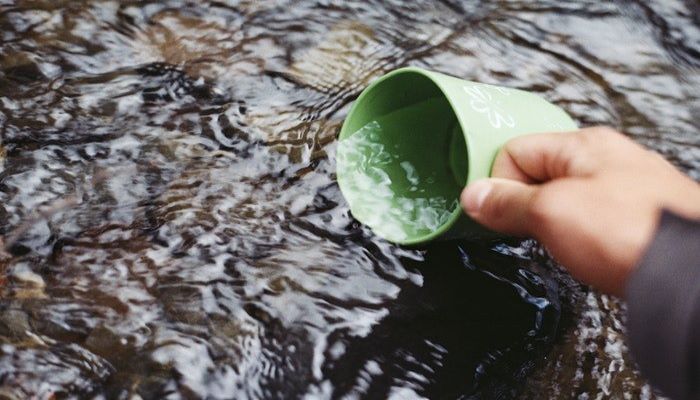India depends a lot on surface water and groundwater to meet its requirements. Surface water comprises of rivers, lakes, and ponds. You have plenty of such rivers in India.
However, you have areas as well where there is no surface water. Such areas depend on groundwater alone to meet irrigation, domestic consumption, and industrial requirements. Therefore, it becomes imperative to have quality groundwater.
However, does India have sufficiently pure groundwater sources? Unfortunately, the answer is ‘NO.’ There is widespread contamination of groundwater throughout India.
Causes of Groundwater Pollution
Natural Causes of Groundwater pollution
- Geological formations cause pollution in the groundwater resources.
- Aquifer sediments contain organic matter. This organic matter generates anaerobic conditions in the aquifer whereby it releases arsenic. Natural arsenic pollution is a significant cause of groundwater contamination in India.
- You also have fluoride contamination because of the solubility of fluoride-containing minerals like fluorite.
- There are also many instances of uranium contamination in groundwater due to natural causes.
Agricultural Causes
- Improper irrigation practices are also significant causes of groundwater pollution.
- Excessive use of fertilisers leads to leaching of nitrate into the soil thereby resulting in a high concentration of nitrates in groundwater.
Industrial Causes
- The release of toxic industrial effluents results into their seepage through the soil and pollutes the groundwater table.
- You usually find heavy metal impurities such as lead, zinc, mercury, cadmium, and arsenic in such polluted groundwater.
- The petroleum industry releases large quantities of brine that increases the salt content in groundwater. The wastes from mines are also responsible for polluting groundwater.
- The improper maintenance of underground gas tanks can cause leakages leading to contamination of groundwater.
- The disposal of sludge not only pollutes surface water but also affects the quality of groundwater.
Municipal and Human Causes
- Landfills and seepage from septic tanks can pollute groundwater.
- The indiscriminate release of human and animal wastes, especially in areas near human settlements is one of the most prominent causes of groundwater contamination.
- The excessive extraction of groundwater for irrigation and other human consumption purposes can cause depletion of groundwater resources. The prime examples of such indiscriminate extraction are found in states like Punjab, Haryana, and the Kutch region in Gujarat. It has led to inland salinity problems in Punjab and Haryana whereas the Kutch region has seen groundwater pollution in the form of seawater intrusion.
- The installation of nuclear power generators has also resulted in the release of uranium into groundwater.
Effects of groundwater pollution
Let us now concentrate on the effects of groundwater pollution.
Impact on Health
- The contamination of groundwater affects the quality of drinking water in places dependent on groundwater for consumption. Arsenic poisoning can lead to skin diseases, gastrointestinal problems, and even cancer.
- Similarly, the contamination of groundwater with mercury can result in cancer and other dangerous diseases. Fluoride contamination is the primary cause for damaged joints, bone deformities, and fluorosis.
- People living in rural areas experience nitrate contamination due to excessive use of fertilisers. This pollution can cause cancer and the Blue Baby syndrome in new-born babies.
- Consuming sewage-contaminated water can lead to viral and bacterial diseases.
Impact on Soil and Agriculture
- Groundwater contamination affects soil quality thereby resulting in low production levels
- High salinity levels in the groundwater in states like Punjab and Haryana has resulted in diminishing agricultural productivity.
Economic impact
- Cleaning up groundwater resources involves a high cost
- Finding alternate water supplies is an expensive affair as well
- Groundwater contamination increases the cost of maintaining the health of individuals.
Impact on the environment
- The contamination of groundwater can cause the depleting of essential nutrients necessary for healthy growth in the ecosystem.
- The groundwater contamination can also affect the quality of surface water thereby aggravating the problem further.
Suggested Remedies to resolve groundwater contamination
Replenish the aquifers in overexploited areas. There should be financial and legal incentives to individuals or societies that take initiatives to recharge a common groundwater resource. One of the best examples is the incentives given by the Tamil Nadu Government for setting up rooftop rainwater harvesting programmes, especially in Chennai.
- Use treated wastewater for recharging groundwater resources.
- Domestic use of demineralization devices like RO water purifiers can help improve the quality of drinking water.
- Implementation of strict laws to discourage people from contaminating groundwater
- The Governments should undertake the responsibility of supplying quality water to heavily polluted areas.
- Restrict the level of groundwater extraction. There should be laws to penalise overexploitation of groundwater resources.
- Creating public awareness is the best way to resolve this issue.
The primary aim of every Indian citizen is to create awareness of the problems caused by groundwater pollution. It can help find a viable solution to this problem.
-Kitchen Arena
